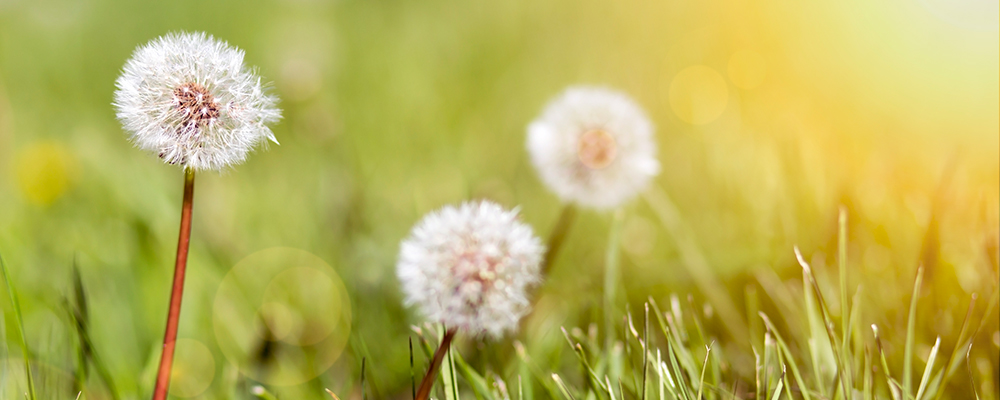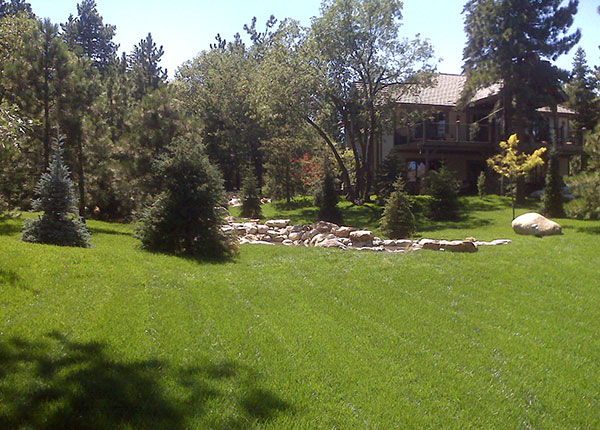Tips for Homeowners
Great advice to keep your lawn looking its best
Controlling Common Weeds in Your Lawn

Eventually weeds will be a problem in every lawn. Keeping your lawn lush and healthy helps eliminate many weeds. If you do get a weed infestation, take quick action. Once a weed population spreads, it is more visible in your yard and harder to eradicate.
Hiring a professional lawn care company to do a quarterly lawn weed and feed spray service is the easiest way to win the battle against weeds in your lawn. If you are a “do-it-yourselfer,” below are some tips to follow based on the type of weeds in your lawn.
Weed Identification
The first step in treating your particular weed problem is to first identify the type of weeds you need to treat. Most weeds in Colorado fall into two main categories – broadleaf and grassy.
Broadleaf Weeds
Broadleaf weeds are the easiest to identify in your lawn because they look the least like the rest of the grass. The most common types of these weeds include dandelion, chickweed, and many others. Broadleaf weeds have leaves that are larger in size and different in shape from a grass that has a long thin blade. Always read and follow directions provided on any chemical applied on your lawn.
Killing broadleaf weeds is accomplished easily with any generic broadleaf weed killer. Many of these are pre-mixed so you just need to purchase the hose attached bottle and spray. If your lawn has been infested with many weeds, consider using a granular “weed and feed” fertilizer that applies an herbicide along with fertilizer to help improve the thickness of your lawn. Remember to wait until the cooler weather of early fall before applying this type of product so the fertilizer won’t burn the turf. Be very careful not to spray near flowers and under drip line of deciduous trees.
If there are only a few broadleaf weeds to deal with, you can purchase and apply a general “spot spray” bottle of broadleaf herbicide that is available at your local garden center. Check product labels or speak with your garden center experts to find an herbicide that will not damage the grass.
Grassy Weeds
Getting rid of grassy weed invaders, like the crabgrass or annual bluegrass, can be tricky. Crabgrass or annual bluegrass can be controlled and even eliminated with careful maintenance, and a lot of patience. Most grassy weeds thrive in hot, dry conditions and produce a very large number of seeds that will germinate when the conditions are right during the following year. Eliminating grassy weeds can be done several ways:
- If you have a larger infestation, treat the condition with a preemergent herbicide for grassy weeds. Do this during the mid-April to early May when the individual plants have not yet begun to germinate. Some fertilizers also include a preemergent herbicide such as Scotts fertilizer plus Halts or other types promoting crabgrass control. The goal of applying any preemergent herbicide is to lay down a barrier which prevents the weeds from germinating in early spring.
- There are post emergent herbicides designed to kill grassy weeds on contact. Normally you need to shut off watering for 24 hours after application to avoid washing the herbicide off the leaves of the grassy weeds. Consult your local garden center for a recommended grassy weed herbicide and apply according to the label. You may need to re-seed or sod bare spots of the lawn damaged in the weed control process. Also check that you’re watering and mowing your lawn properly to ensure the best growth and prevent the grassy weeds from returning.
If you are unsure of your problem, take a sample and go directly to your local home improvement store, or for a professional opinion. For more information about controlling weeds in your yard, checkout the Colorado State University, Extension Service, Master Gardner at cmg.extension.colostate.edu.
Get A Quote Online
Getting a quote for your sod is easy and convenient. Just let us know how much you need and when you need it. We can even arrange to deliver it right to your work site.

